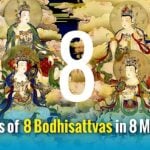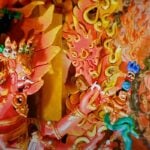Hungry Ghost Festival: Offerings to the Suffering
This is a merit and generosity festival for humans — to offer nourishment and support to the suffering ghosts, one of the six realms in Buddhism. The Ghost Festival or Hungry Ghost Festival, also known as the Zhongyuan Festival in Taoism and the Yulanpen Festival in Buddhism, is a traditional festival held in certain East and Southeast Asian countries. According to the Chinese calendar (a lunisolar calendar), the date in 2024 will be on August 18, 2024. The seventh lunar month is also broadly considered “Ghost month” with the 15th day being the “Hungry Ghost Festival.” Some areas celebrate on the 14th of the lunar month in the evening, or the 18th.
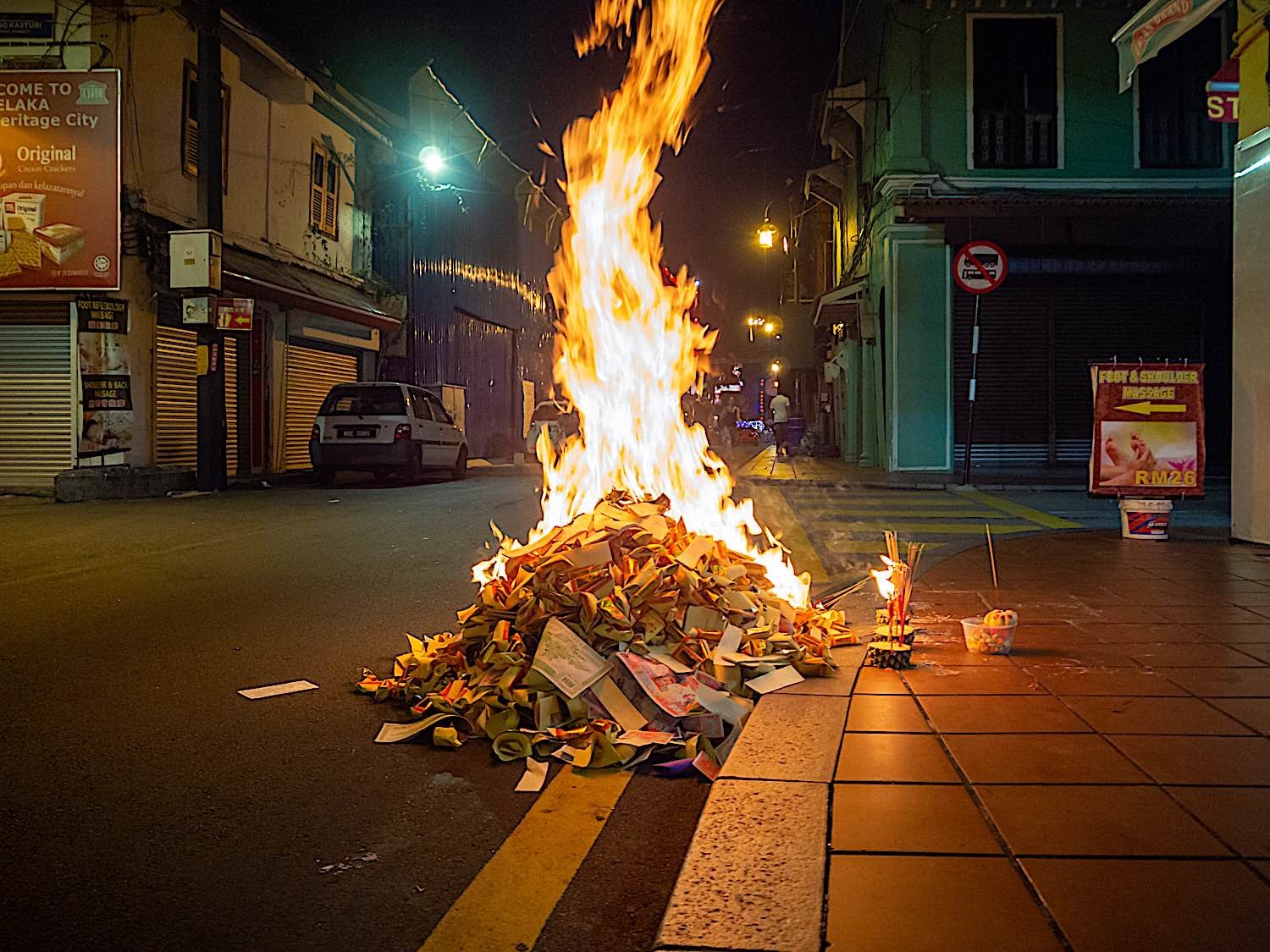
On this day, we put out offerings for the suffering Hungry Ghosts as an act of charity and merit. It’s not a scary event where ghosts are wandering around frightening people. The festival is about helping those suffering as “Hungry Ghosts.”
Typically, our offerings should be “burned” so that the hungry ghosts can enjoy them. We also might donate to hungry and needy people who are suffering in their current lives to help their suffering now.
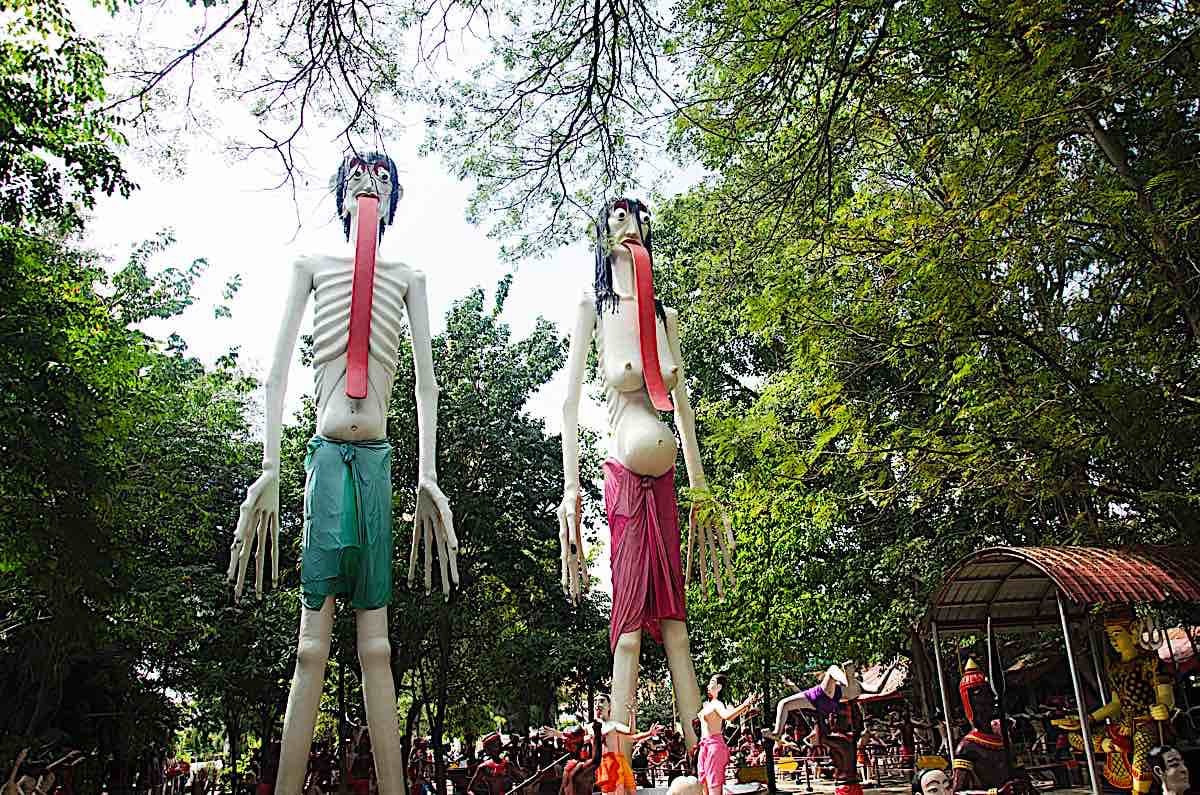
Hungry Ghost Festival
Zhong Yuan Jie (中元节), also known as the Hungry Ghost Festival, traditionally falls on the 15th day of the seventh month of the lunar calendar, but in some areas, such as Singapore, the festival is observed throughout the entire seventh lunar month, which is usually around the month of August of the Western calendar.
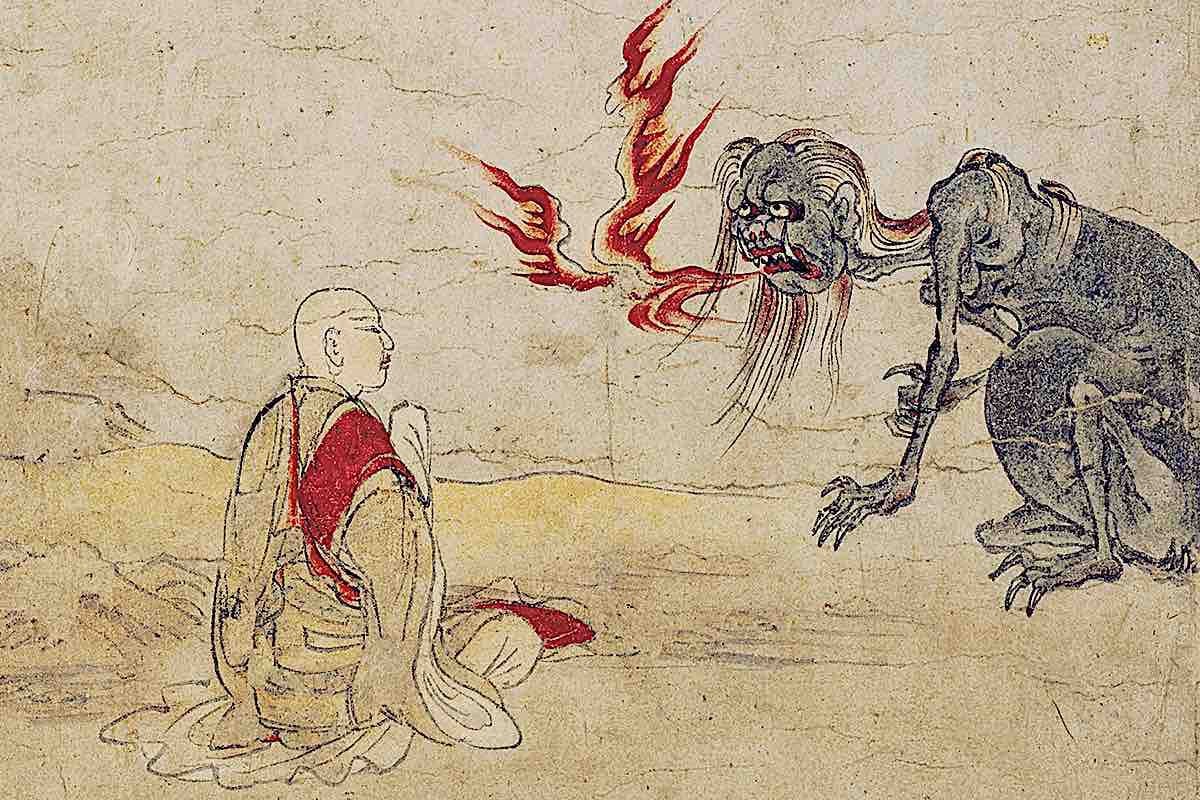
Hungry ghost is a term in Buddhism, and Daoism, representing beings who are driven by intense emotional needs in an animalistic way. The terms 餓鬼 èguǐ literally “hungry ghost“, are the Chinese translation of the Sanskrit term preta in Buddhism.
Flower Garland Sutra
According to the Flower-Garland Sutra (Hua-yen Sutra) evil deeds will cause a soul to be reborn in one of six different realms. This can be viewed as literal, within the cycle of endless rebirths, or as a description of a state-of-mind. The six realms themselves can be thought of this way, as either literal realms, or states of mind. For instance, if your teacher says you’ve been born into a life in the God Realm it could just mean a realm where you are constantly pursuing pleasures in life. If you’re described as suffering in the hell realm, that can mean your life has become a self-imposed cycle of non-stop suffering. It doesn’t always refer to literal hell realms or hungry ghost realms.
Calendar
Dharma Dates
 Loading…
Loading…Please support the "Spread the Dharma" mission as one of our heroic Dharma Supporting Members, or with a one-time donation. Learn more>>



